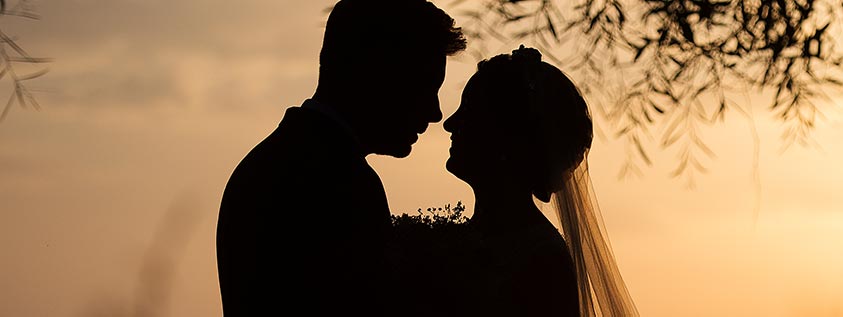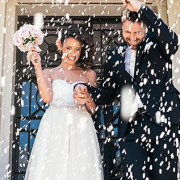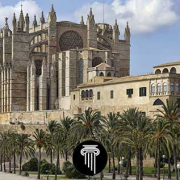Marriage in Spain: What Do You Need to Know?
If you are looking to get married in Spain, there are a few things you need to know. This article aims to describe everything you might need to know about marriage in Spain; next to this, we answer some frequently asked questions at the end.
Content
History of marriage in Spain
In the past, marriages were an arrangement by parents or other relatives. They used marriage markets to find potential spouses for their children. These markets were places where people could go to look for a spouse. The bride and groom did not have a lot of say in who they married. Next, demographic, economic, and religious factors also influenced marriage.
Marriage used to be primarily a way to consolidate property and create alliances between families, and getting married was often a way to increase one’s social status.
In the painting “The Spanish Wedding” by Fortuny, you can witness a typical Spanish wedding. You can see the marriage license or registry signing that is done after the ceremony in this painting by Fortuny.
Because Spain used to be a religious country, people married in a church. The Catholic Church was the most important institution in Spain, and it controlled many aspects of society, including marriage.
The Catholic Church believed that marriage was a sacrament, which meant that it was a holy union between a man and woman. The church also believed that marriage was for life, so divorce was nearly impossible.
Marriage in present days
Nowadays, more and more couples (especially in the major cities) choose to have a civil ceremony rather than a religious one. Since Franco died in 1975, the Spanish government and the people have moved away from Franco’s push for Catholic values.
Now Spain is a secular country, and the government does not recognize any religion as being official. Around 1 in 5 marriages are still catholic marriages. In this way, attitudes to marriage are changing in Spain, much as they have in other European countries. As we know it, traditional marriage is gradually being phased out of existence in Spain because of this shift away from old ways of living toward more contemporary ones.
The country’s declining marriage rate and the rising age at first marriage among men and women illustrate how marriage is becoming less important to Spaniards. While depending on the year, the average age for marriage in Spain is around 37 for men and 33 for women, which is slightly higher than the average age in other European countries. Next to this, it has been somewhat rising over the years.
Couples nowadays face less social pressure to marry quickly, allowing them to spend more time looking for a partner, work, and enjoy themselves. Young people are also waiting longer to have children, which might also result from the changing attitudes toward marriage.
How to get married in Spain?
Below are the steps you need to go through to get married in Spain.
1. Choose what type of marriage you want
There are two types of marriage ceremonies in Spain: religious and civil. Spain recognizes both civil and religious marriages. Most marriage ceremonies in Spain are civil marriages, but you can also choose to have a religious marriage of course. Religious marriages can be Catholic, Protestant, Muslim, Jewish, etc.
You must have all of the required documents for civil marriage and the consent of your church to have a religious marriage. Couples may marry in a religious ceremony following the civil wedding ceremony, and a religious ceremony recognizes marriage as a spiritual commitment.
2. Choose the location
Weddings that are both formal and full, including bridal gowns and the presence of family and friends, are often held in the town hall’s unique ceremonial rooms. These rooms have a beautiful view over the city or are located in historical buildings. You can also choose to marry in a religious place, such as a churcge.
It is best to start looking for one as soon as possible because they tend to be booked up well in advance. There are also many wedding planners available who can help you with all the details of your wedding.
3. Set a date and time for the marriage
The wedding date you will probably remember for the rest of your life. You will want to choose a date that is convenient for everyone involved, including your guests. Most people marry on a Saturday, but you can marry on any day of the week except for Sunday. Marrying often happens in the morning, but it is also possible to have an evening wedding. Season also matters when it comes to choosing a date for your wedding. The most popular months to get married in Spain are May, June, September, and October. People usually marry a year after proposing.
4. Check the requirements for marriage at the civil registry office
To get officially married in Spain, you need to get a marriage licence (matrimonio) from the civil registry office (oficina del registro civil). To get this licence, you must meet certain requirements, which defer depending on the municipality. For example, foreigners usually need to provide a certificate of no impediment (certificado de no impediment) from their home country.
Inquire about how old you must be, the cost, what forms of identification are required, and how long it will take before your license is valid (some have an application deadline of one or more days from when you submit).
5. Get the marriage licence
Once you have all the paperwork in order, you can apply for the marriage licence at your municipality. You will need to go in person and present all the required documents. The process usually takes about a week but during peak wedding season.
Typically, the officiator who joins you together will have a marriage certificate. On this certificate, they will sign, you will sign, and two witnesses will sign. The official will then file it with the court, and you should receive a duplicate.
6. Have the marriage ceremony
Once you have the marriage licence, you can have the marriage ceremony. This can be done at the civil registry office or at a church. If you choose to have the ceremony at a church, make sure to check with the church to see what their requirements are.
Spanish wedding ceremonies are typically very formal and traditional. A Spanish wedding tradition during the ceremony includes that the groom’s close friends cut the groom’s tie and sell the pieces to the guests to help raise money for the couple, and the bride’s pals would do the same with her wedding garter. A few different ceremonies may take place during your wedding, depending on the location and type of ceremony.
Frequently asked questions
Below are frequently asked questions about Marriage in Spain.
What is a marriage licence?
The marriage certificate is a verifiable, official copy of the wedding provided to the married couple after the ceremony.
What is a civil marriage?
Civil marriage is a marriage performed by the state, and it is not religious and therefore does not involve any religious ceremonies or rituals.
What is a religious marriage?
A religious marriage is a type of marriage that is performed by a religious authority, such as a priest or rabbi. It is typically more formal than civil marriage and may involve specific rituals or ceremonies.
What is the civil registry office?
The civil registry is a department of the local government. A copy of the marriage certificate can be obtained from the civil registry office. Foreigners married in Spain will be issued a civil marriage certificate, which is generally valid worldwide. You may need to have this certificate translated and/or legalized for use in your home country.
What are the differences between a marriage and a wedding?
A wedding is a type of ceremony that marks the official union of two people. A marriage, on the other hand, is a legal contract or agreement that is made between two people.
What is the difference between civil marriage and religious marriage?
Civil marriage is performed by the state and does not involve religious ceremonies or rituals. A religious official performs a religious marriage and does involve religious ceremonies and rituals.
Is same-sex marriage legal in Spain?
Spain was one of the first countries in Europe to legalize same-sex marriage back in 2005. Through a marriage, the pair can obtain various rights that are also open to couples who marry through a civil ceremony or religious marriage. As a result, they can adopt a kid, gain property and inheritance rights, as well as other rights.
How do I get married in Spain?
The first step is to apply for a marriage license from the civil registry. Once you have the license, you can have a civil ceremony or a religious ceremony. If you choose to have a religious ceremony, you will also need to have your marriage approved by the church.
Can foreigners get married in Spain?
Yes, foreigners can get married in Spain if they meet the eligibility requirements.
What are the benefits of marrying a Spanish national?
There are many benefits to marrying a Spanish national, including automatic residency for the spouse, access to social security and healthcare, and the ability to work in Spain.
Where are some popular locations to get married in Spain?
Some popular locations to get married in Spain include Barcelona, Granada, Madrid, and Seville.
What is a civil partnership?
A civil partnership is a type of relationship similar to marriage, and it offers many of the same rights as marriage. The main difference between marriage and civil partnership is that civil partnerships are not considered actual marriages.
- For legal purposes, civil partnerships are not considered to be married.
- Marriages are solemnized by saying a prescribed form of words.
- Divorce is the termination of a marriage.
- A dissolution order ends civil partnerships.
- Marriages may be solemnized in a civil or religious ceremony.
- A civil partnership is formed in an entirely civil manner. Civil partners can choose to have a ceremony (religious or civil) after their civil partnership is formed.
Civil partnerships are typically less formal than marriages and do not involve any religious ceremonies or rituals.



